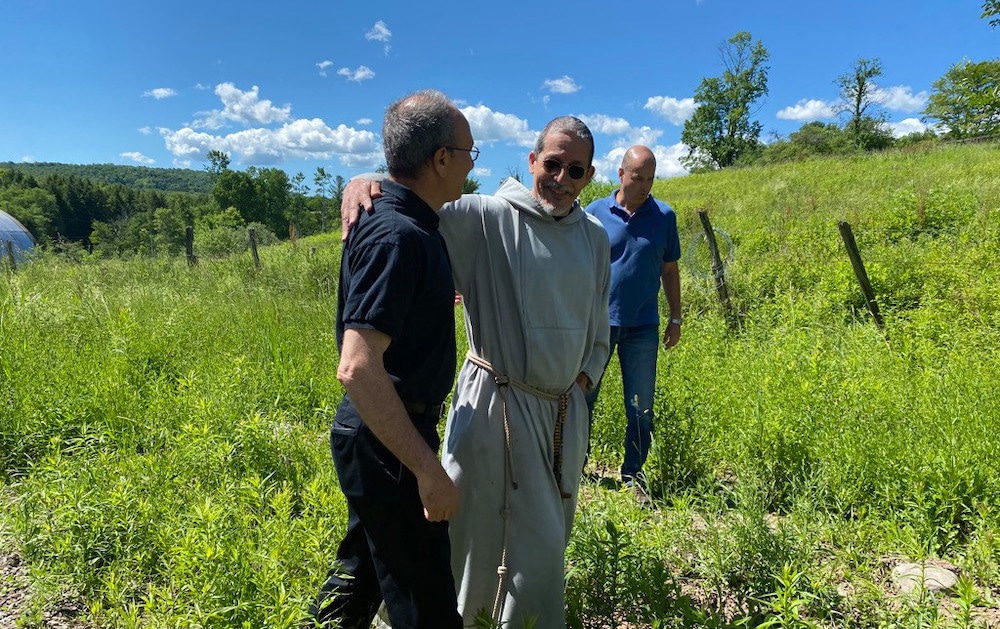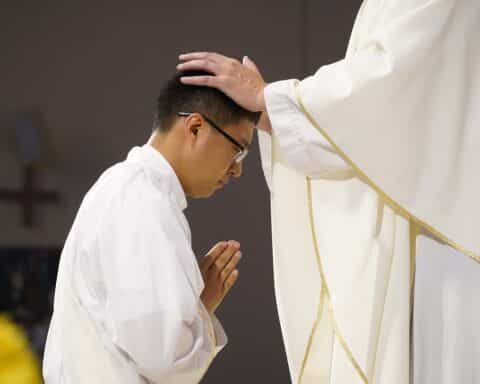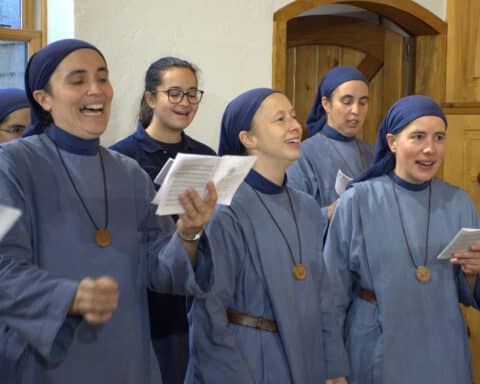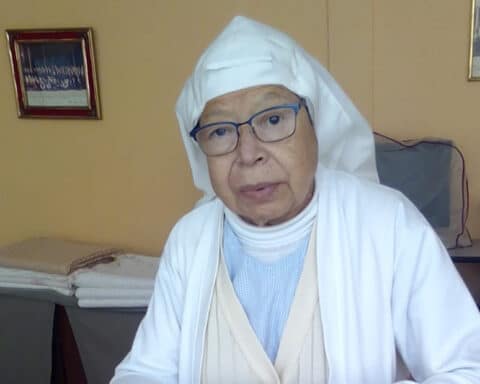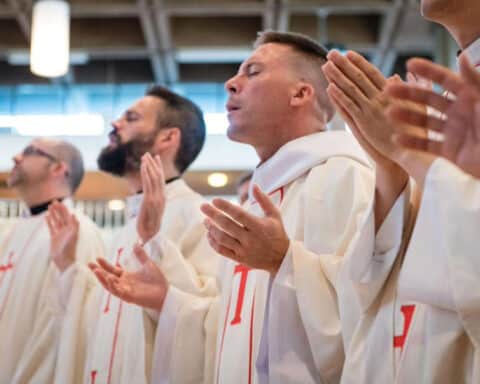An important and indispensable part of the life of every Catholic is vocational discernment. What is God calling me to do? How is God calling me to live as his disciple? It can be difficult to listen to God’s voice when surrounded by the noise of everyday life. Holy Family Farm in Monticello, New York, is one place where young men can go to quietly, prayerfully discern their vocation.
Deacon Andy Zucaro has been involved with Holy Family Farm since its inception on Nov. 19, 2019. The world would consider him the chief executive officer and president, but he prefers the title “servant of servants.” This fits in well with the farm’s connection to the Franciscan Friars of the Renewal, whose community superior eschews any moniker of power, and instead bears the title “general servant”.
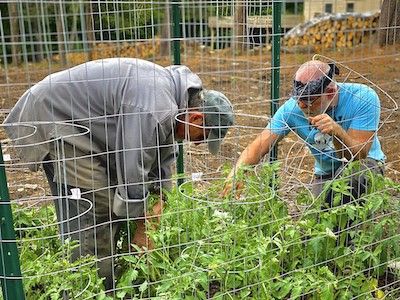
The purpose of Holy Family Farm, according to Deacon Zucaro, is “forming men for a greater future.” “Men have a chance to leave the noise of the world to find the presence of God,” he said. “They have the time and opportunity to live a simple prayerful life.” More than finding the presence of God or living a prayerful life, the farm is a place where men can prayerfully discern just what God is calling them to do and to be.
“What God is calling them to do becomes evident over time,” he said. “We are all created for a purpose. When they find their true purpose, they will live a life that will make a difference to many.
“The men who have lived at Holy Family Farm will change the world for generations,” Deacon Zucaro said.
So what does life at Holy Family Farm entail? It is not simply living in a rural setting, praying and discerning, and soaking up a quiet atmosphere. The program at Holy Family Farm consists of prayer, manual work and learning, all while living in community. It is “a way of life which helps prepare a man to move forward,” according to the farm’s website. The organizers coined the term “farmation,” meaning a process of becoming a faith-filled man with a plan and a purpose for his life, a kind of healthy formation that combines human and spiritual formation through prayer, manual work and learning.
Beginnings
This humble, rural Catholic community has its origins back in the fall of 2019, when two members of the Franciscan Friars of the Renewal wanted to found a farm where young men could go through human and spiritual formation. There was a recognition of the challenges faced by men in today’s society, the numerous distractions presented by social media and other technology. Everyone is surrounded by noise and needs silence in order to listen for God’s voice. They also noted an aversion to manual labor, a hesitation or fear to face the challenges and responsibilities of everyday life. So what can be done?
Read more articles from the Spring 2023 Vocation series here.
The friars and laypeople who had these conversations quickly developed the idea that would become Holy Family Farm. Two years later, a suitable property (with a suitable residence) was found and purchased. Sullivan County, New York, is the home of Holy Family Farm, on a property that directly borders the Saint Francis Retreat Center, run by the Franciscan Friars of the Renewal.
A day in the life
What does life look like at Holy Family Farm, practically speaking? It is a life of prayer, work and discernment. The community is directed by Father Glenn Sudano, CFR. He provides the sacraments, as well as spiritual direction and pastoral counseling, to the community. The Holy Sacrifice of the Mass and the Sacrament of Confession form the foundation of the community’s life, as well as communal prayer of the Divine Office.
The day begins at 6 a.m. with the Office of Readings from the Liturgy of the Hours. Every morning, the community gathers for Mass, and there is a period of silence for personal prayer, spiritual reading and reflection. The day is then filled with work and more prayer. There are also ample opportunities for healthy recreation, including hiking, hunting, skiing, ice-skating and kayaking, among others. The day comes to an end with adoration of the Blessed Sacrament and then night prayer at 9 p.m.
Why a farm?
The farming at Holy Family is not an industrial scale, nor is it intended to be. According to Father Glenn Sudano, it is more like the family farms that dotted America a century ago, meant to sustain the family rather than the whole world. “While Holy Family Farm will indeed market organic food and durable goods, its real purpose is to produce real men,” he wrote on the Holy Family Farm website. “The traditional family farm not only produced healthy food — but, often enough, healthy people!” He continued, “It has been said often, and it is true: farm families work hard, eat well, laugh often and sleep better than the rest of us!”
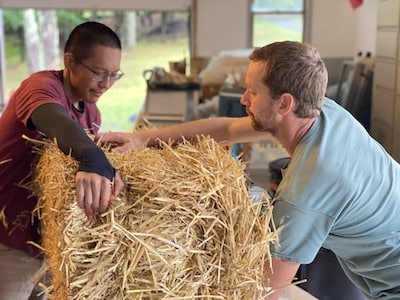
It sits on a 60-acre property, only fairly recently purchased, so only a small portion has been cleared and is being farmed. The needs of the community will be met by a large organic garden, fruit orchard and free-range poultry, and the community’s abundance will be shared with others. The many wooded acres provide abundant resources for heating in the winter, as well as building materials. Eventually, as more of the acreage is cleared, there will be cattle and perhaps other livestock on the property.
In his 1981 encyclical Laborem Exercens, Pope St. John Paul II wrote that “work is a fundamental dimension of our life on earth.” Working with the land, running a farm, and manual labor in general can bring us closer to God.
“Men learn to live a simple prayerful life,” Deacon Zucaro said. “God is at the center of everything. Everything we do matters, and should be done to the best of our ability. It can be splitting wood or cooking a meal. In doing simple things well, we can do many things well.”
Paul Senz writes from Oregon.

